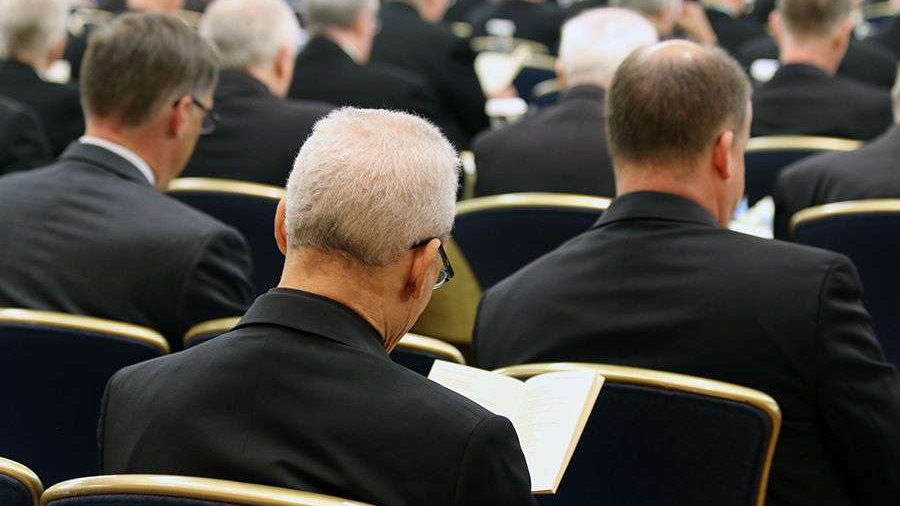The bishops of the United States have narrowly approved an increase on the amount dioceses must contribute to the national bishops’ conference. The measure initially failed to pass when put to a vote during their November 2019 meeting and additional votes had to be collected by mail to ensure the measure passed.
On the first day of their November meeting last year, the bishops voted in favor of a three percent rise in the amount each diocese in the country is required to contribute for the funding of the USCCB, based in Washington, DC, for the year 2021. But the vote of 111 to 55 in favor failed to receive the necessary two-thirds majority to pass.
The conference leadership ruled the vote “inconclusive” and determined to send additional postal ballots to bishops not present at the meeting. Two months after the initial vote in Baltimore, the measure passed with a final tally of 130 in favor, 62 against, and three abstentions.
The final result of 130 votes in favor from diocesan and eparchial bishops was the minimum number of votes required to pass. During the first vote in Baltimore, the bishops of New York had to vote electronically from Rome, where they were conducting their ad lima visit to Pope Francis and the Roman curia.
The diocesan assessment, currently estimated at $25 million per year, is used to fund administrative, pastoral, and public policy programs at the USCCB, and the conference has told the bishops that a regular increase is necessary to maintain reserves.
The three percent increase is the first to be passed by the bishops since November of 2017, but which did not come into effect until the 2019 financial year. In November of 2018, no increase was approved for the 2020 assessment, largely due to the costs dioceses were facing from a surge of new clergy sex abuse lawsuits.
Following the inconclusive vote at the 2019 meeting, USCCB treasurer Archbishop Dennis Schnurr called the failure to pass “no surprise,” and acknowledged the financial challenges of some dioceses facing a resurgence in clergy sex abuse claims from new openings in state statutes of limitations.
“There are a lot of dioceses in this country that are looking at bankruptcy,” Schnurr said.
While the assessment increase can now come into effect, some bishops have publicly stated their opposition to the rate hike.
Archbishop Charles Chaput of Philadelphia said in November that his archdiocese’s assessment amounts to $257,000 per year which, when paired with a matching donation to the Holy See, totals more than half a million dollars annually.
“I don’t have this kind of money to keep increasing it [the assessment],” Chaput said. “We have huge expenses because of the sexual abuse issue and related circumstances.”
Chaput also noted that the conference itself was in ruder financial health than many of the dioceses being asked to fund it at ever-increasing rates, including his own.
The Archdiocese of Philadelphia had to pay more than $32 million in settlements to abuse victims, after a window for new abuse claims closed on Sept. 30 in the wake of a Pennsylvania grand jury report, released in August of 2018.
Chaput said that the USCCB also has more savings and investments in reserve than the archdiocese does.
“I don’t think that some of the work of the USCCB is essential to the mission of the Archdiocese of Philadelphia,” he said.
Other bishops have noted that the three percent increase is essential for the conference to keep up with inflation and rising operating costs.
In November, Cardinal Blase Cupich of Chicago noted that it had been several years since the last rate increase, and that the three percent rise would not even keep up with the accumulated cost of inflation.

